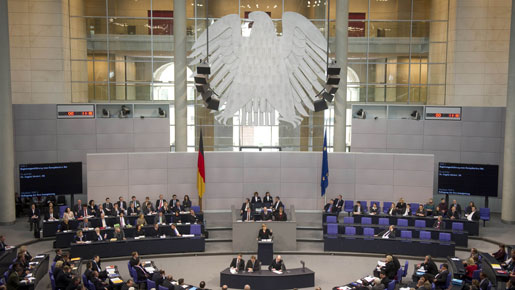
However, throughout the deliberation there remains one country with its feet firmly on the ground; and that is Germany. While it still has its own problems, notably public confidence in the coalition’s ability to push through spending cuts, public sector deficit estimated to reach five percent of GDP by the European Commission in 2010, and the €80bn four-year austerity package, it remains that Germany has the strongest economy in Europe. The German deficit is small in comparison with other European countries and has much more capital behind it to not have to worry too much about its economic future.
Most of the country’s products are in engineering, especially in automobiles, machinery, metals, and chemical goods. Germany is the leading producer of wind turbines and solar power technology in the world and of the world’s 500 largest stock market listed companies measured by revenue, the Fortune Global 500, 37 are headquartered in Germany. Well known global brands are Mercedes Benz, SAP, BMW, Adidas, Audi, Porsche, Volkswagen, Nivea and BASF.
The overall unemployment rate has consistently fallen since 2005 and reached a 15-year low in June 2008 with 7.5 percent. Despite in June 2010 the unemployment rate coming in at 8.2 percent, this is still much lower than Spain’s 17.9 percent, France’s 9.9 percent and the eurozone’s average of 10.1 percent.
Germany is a strong advocate of closer European economic and political integration, and its commercial policies are increasingly determined by agreements among EU members and EU single market legislation. German Chancellor Angela Merkel is very much ruling the roost though when it comes to European legislation by confining restrictions to eurozone legislation in order to guarantee Greece as a one-off and to ensure the ¤750bn bailout package for its members rises no higher.
Merkel herself has a tendency to rub people up the wrong way and is often referred to as “Iron Girl” or “Iron Frau”, alluding to Britain’s Margaret Thatcher. Her relationship with Sarkozy is notoriously bad and on David Cameron she said: “This is going to be a very honest and candid partnership,” after she was left unimpressed with their first 90 minute meeting (and his time as leader of the opposition). But despite slumps in her coalition’s popularity she is still considered by many to be the leading figurehead in Europe.

